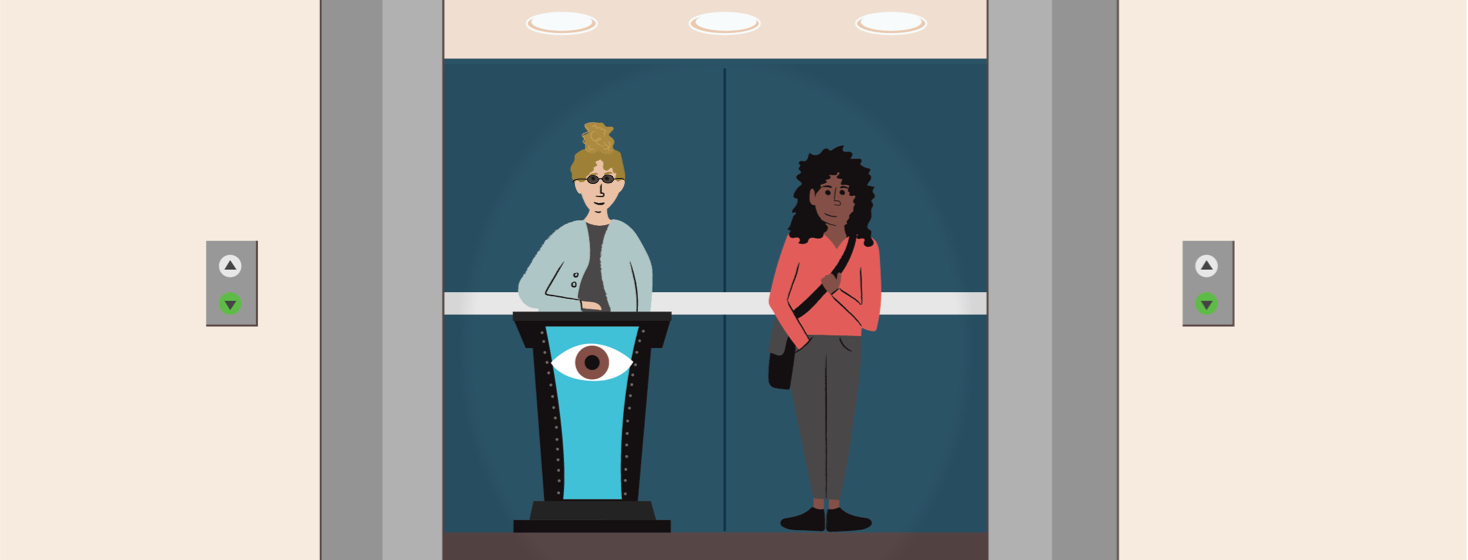The Elevator Speech
When I was first diagnosed with thyroid eye disease (TED), I did not want to believe it. So, simply put, I just did not. In fact, I denied it. I denied it to myself, my family, my friends. Whenever someone would ask if I was ok, say "your eyes look a little red," "have you been crying?," or the plethora of other comments and questions, I found ways to respond that suited me at the time. "Must be allergies," was my favorite for a while.
Denying my diagnosis
I went about the business of trying to get a different diagnosis for my eyes. Not surprisingly, I started with allergy specialists. When they found nothing, I visited a multitude of ophthalmologists for various symptoms. Each path I took led me straight back to the original diagnosis. And if I have learned anything in the last couple of years, it is to find grace in the pivot. After another visit with the TED specialist, and acceptance of the original diagnosis, I took the opposite approach. Ok, so if I am going to have this, then I am going to learn all that I can, and find the best ways to deal with it.
I quickly learned that I would need both emotional and physical support along the way. Like you, I was lucky enough to find ThyroidEyeDisease.net. Here, I have found the knowledge I was seeking, AND the support from the community I craved. That said, there is still the day-to-day, where I live, work, and play. The folks around me may still ask questions. As I reach for the 3rd tissue in as many minutes to dry the tears from the dryness, a co-worker asks, "Are your eyes ok? They do look a little red."
Developing my elevator speech for thyroid eye disease
This has prompted the need for a quick response. In the business world, they call it the elevator speech. A one to two-minute pitch for your latest and greatest idea, just in case you happen to be riding an elevator and the boss comes in. Now, as a teacher-librarian, I tend to be a rather wordy woman, so, I find I need a quick effective response to why I am wearing sunglasses indoors. I am just being honest here. It looks a little strange to those who do not understand my circumstances.
Here are my tips for a good elevator speech. Keep it short. For me, this is key. Next, explain the current situation and the accommodation being made. "I am very sensitive to light these days. I have been diagnosed with thyroid eye disease, and it helps if I wear my sunglasses while I work on my computer, read, etc." Lastly, start with a smile. This helps put the other person at ease and sends positive vibes to my brain.
Accepting and preparing
You will notice I am no longer denying this reality. I am fully conscious and aware of my situation. But, in my elevator speech, I am not giving the diagnosis, or this disease, any power beyond a minor inconvenience. Answering questions may become more common for me going forward. But as I try to stay positive, deal with the symptoms as they come and go, and live my regular life, I have spent some time thinking about elevator speeches. I try to have a couple in the back of my mind. And I am finding more and more that whenever I need to call one up, the most important step is curling the corners of my mouth into a smile before even uttering a word.
What do you do when someone asks about your TED symptoms? Click the button below to share with our community!

Join the conversation